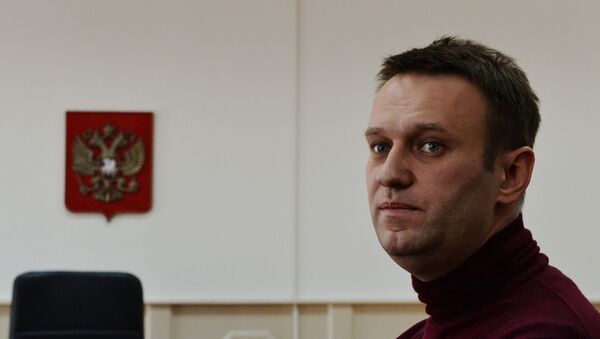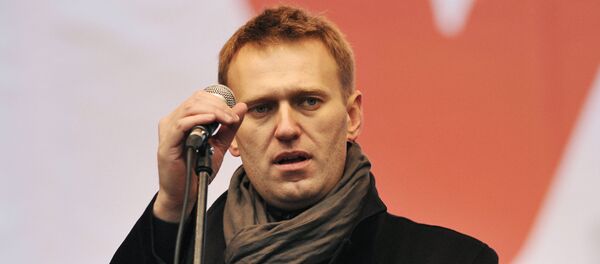Alexei Navalny's latest video about the alleged assassination plot against him was a pre-planned provocation against the Federal Security Service (FSB) and its staff, and would not have been possible without the organizational and technical support of foreign intelligence services, the Russian intelligence agency said in a statement Monday.
"The use of the subscriber number replacement method is a well-known technique of foreign special services, previously tested more than once in anti-Russian actions, which makes it possible to rule out the possibility of identifying real participants in the conversation," the FSB press service said.
Earlier in the day, Navalny released a video on his YouTube channel featuring what he claimed was a phone conversation with an FSB operative, in which a man identified as Kudryavtsev outlined details about how the August 'poisoning' of the liberal opposition figure transpired, going so far as to say that the Novichok nerve agent used to try to kill him was placed in Navalny's underpants. Navalny said that the call was disguised as an incoming call from FSB headquarters, and personally posed as a fellow FSB officer during the conversation.
In its statement, the FSB dismissed the call with the alleged agent as a "fake," and said that a probe has been set up to assess the situation.
Monday's video was the second time in two weeks that Navalny has accused the FSB of trying to kill him using Novichok. Last week, he alleged, citing media investigations by Bellingcat, CNN, Der Spiegel and The Insider, that an "elite unit" of the FSB consisting of between six and 10 operatives had been tracking him since 2017, secretly accompanying him during his trips throughout Russia, and eventually possibly poisoning him in Tomsk, Siberia in August.
'Poisoning' Saga
Russian officials have repeatedly dismissed the poisoning claims, with Novichok co-creator Leonid Rink telling Sputnik in September that Navalny would have been dead before ever making it to his plane if he had truly been poisoned by the Cold War-era nerve agent. Observers have also questioned the Navalny narrative on his escape from Russia, asking why, if the Kremlin sought to kill him, he was let out of the country and flown to Germany on an emergency charter flight for treatment in Berlin.
Last week, in his annual December press conference, Putin expressed doubt that anyone, including the Kremlin, wanted Navalny dead, and suggested that the alleged poisoning and so-called "investigation" served a different purpose - to attack "the top people" in the Russian government.
Navalny fell gravely ill during a domestic flight from Tomsk to Moscow on 20 August. The commercial plane he was traveling on made an emergency landing in Omsk, where doctors saving his life and blaming a catastrophic drop in bloodsugar for his illness. Navalny was then transferred to Berlin's Charite hospital, where it was claimed that trace amounts of Novichok had been found in his blood. Moscow was then accused of a plot to murder the opposition figure.
The German side offered no evidence to Moscow to back up its allegations, and repeatedly rejected Russian efforts to join the investigation, blocking off contacts between the Russian doctors who treated Navalny and their German counterparts.
Alexei Navalny has been a key figure in Russia's liberal, pro-Western opposition for over a decade, and is arguably the best-known Russian opposition figure in the West. In his home country, he has been best known for his work as a blogger and his investigations into alleged corruption by Russian government officials and businessmen. Navalny and his brother Oleg were themselves convicted of money laundering and defrauding their business partners in a 2014 case involving timber sales in Russia's Kirov region. The timber case got Alexei a three-and-a-half-year suspended sentence, while his brother was made to serve the full sentence.






